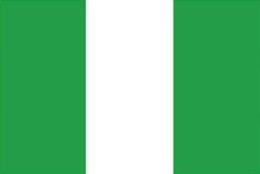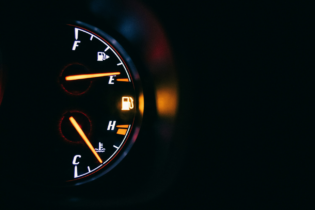Nigeria is the largest oil producer in Africa and has been a member of the Organization of Petroleum Exporting Countries (OPEC) since 1971.
In 2011, Nigeria produced about 2.53 million barrels per day (bbl/d) of total liquids, well below its oil production capacity of over 3 million bbl/d, due to production disruptions that have compromised portions of the country’s oil industry for years. The oil industry is primarily located in the Niger Delta where it has been a source of conflict. Local groups seeking a share of the oil wealth often attack the oil infrastructure and staff, forcing companies to declare force majeure on oil shipments. At the same time, oil theft, commonly referred to as “bunkering,” leads to pipeline damage that is often severe, causing loss of production, pollution, and forcing companies to shut-in production For the last nine years, the U.S. has imported between 9-11 percent of its crude oil from Nigeria; however, U.S. import data for the first half of 2012 show that Nigerian crude is down to a 5 percent share of total U.S. crude imports. Security riskSince December 2005, Nigeria has experienced increased pipeline vandalism, kidnappings, and militant takeovers of oil facilities in the Niger Delta. The Movement for the Emancipation of the Niger Delta (MEND) is the main group attacking oil infrastructure for political objectives, claiming to seek a redistribution of oil wealth and greater local control of the sector. Additionally, kidnappings of oil workers for ransom are common and security concerns have led some oil services firms to pull out of the country and oil workers unions to threaten strikes. Bunkering, which in the context of Nigeria’s oil industry refers to the theft and trade of stolen oil, has recently surged, and according to NNPC data, pipeline vandalism increased by 224 % in 2011 over the previous year. Estimates from Nigeria’s Ministry of Finance show that about 400,000 bbl/d of oil was stolen in April 2012, which led to a fall of about 17 percent in official oil sales. Royal Dutch Shell, Nigeria’s largest producer, recently estimated that 150,000-180,000 bbl/d, or 6 percent of the country’s total production on average is lost to oil bunkering and spills over security issues. According to the Nigerian National Oil Spill Detection and Response Agency (NOSDRA) approximately 2,400 oil spills were reported between 2006 and 2010 that resulted from sabotage, bunkering, and poor infrastructure. The amount of oil spilt in Nigeria has been estimated to be around 260,000 barrels per year for the past 50 years, according to a report cited in the New York Times. OPEC countries including Nigeria are producing oil at their full capacity. However, Nigeria has recently experienced a decrease in production levels due to the security issues highlighted above. In fact, Nigeria imports most of its fuel requirements as the refineries cannot distillate enough fuel for local consumption.
The four refineries (Port Harcourt I and II, Warri, and Kaduna) have a combined capacity of approximately 445 000 bbl/d, according to OGJ.Due to the lack of maintenance, theft and fire, none of these four refineries has reached full production capacity. In 2009 and part of 2010 particularly low refinery runs forced the country to import about 85 percent of its fuel needs.
Calculation of Normal Fuel Pump PriceThe market fuel price is regulated in a dual pricing mechanism for petroleum products. While the petrol price is regulated from time to time by the government, diesel pricing seems to be deregulated with marketers free to charge prices as they wish. The petrol price is usually set below normal market prices due to the government subsidy scheme. The Petroleum Products Pricing Regulatory Agency (PPPRA) is the organ in charge of determining the Expected Open Market price (EOMP). The domestic fuel price is subsidised. Calculation of Fuel Pump Subsidy
The difference between the expected open market price and the approved retail price is the subsidy amount per litre. It is funded through budget provision under the supervision of the Petroleum Support Fund (PSF). The PSF mission is as follows:
- Stabilise the domestic price
- Create a level-playing field for active participation of NNPC and other suppliers
- Guarantee effective product availability and nationwide distribution
- Maintain transparency and accountability in the administration of the fund on the petroleum products subsidy in line with Government objectives.
b) Nigeria grows most of its own food but still imports a considerable number of products such as wheat and rice and thus the currency weakness affects the poor.
c) Excess spending prior to the 2015 elections to pump excess liquidity into the banking system has contributed to the currency devaluation.
d) The Central Bank of Nigeria has introduced restrictions in forex supply to reduce the difference (margin) between the official exchange rate and the parallel market exchange rate which has always been a challenge in the foreign exchange market. This fuels speculations, as it signals to people that we don’t have the dollars to meet supply. In fact this is a major factor causing these gaps in exchange rates.
e) The 10 Kobo margin limit imposed on intervention dollars limits dollar transactions through banks only and bans banks from selling dollars to Bureaux de Change. This has created a dollar scarcity resulting in Naira depreciation. The Future
Given the current situation, and taking into account the Brent Crude Oil predictions and currency exchange factors, Eqstra anticipates that the Nigerian fuel price will increase between 0 – 3% until December 2015. The company therefore recommends that an annual inflation of at least 3% is budgeted for fuel in 2015. However, government intervention on the petrol price determination and the uncontrolled diesel market price makes this figure unpredictable. Eqstra recommends that you review your fleet mix and operational costs at least every two years to ensure you optimise cost and efficiency within your fleet.







